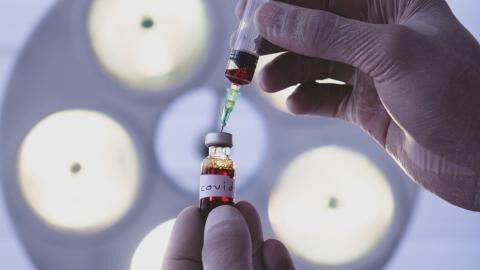New cases
COVID cases have fallen in the UK but remain high, with more than 20,000 people infected every day, in part because vaccinated people can still spread the virus. How do vaccinated people spread COVID?
Discover our latest podcast
Vaccination has gifted England a new lease of life, with people now enjoying relatively restriction-free society for the first time in more than a year. The looming threat of COVID remains, however, as tens of thousands of cases continue to rip through the UK despite the growing immunity. Although fully vaccinated people have the best protection, they're not entirely immune, and they can continue to spread the disease.
How do vaccinated people spread COVID?
Vaccines provide a veil of protection for people, roughly 95 percent following a second dose. Data has also shown they reduce viral transmission, cutting virility by more than 80 percent in some cases.
As such, they can still infect other people when they eject virus particles by sneezing or coughing. The Delta variant, which is currently the most dominant in the UK, adds more danger.
The US Centres for Disease Control (CDC) based its newest mask advice on data from 'breakthrough' infections. In these cases, COVID 'breaks through' the defensive wall provided by the vaccine and infects people.
The CDC's latest research has found a significant concentration of COVID in the noses and throats of vaccinated people following a breakthrough case. Although the agency has not yet published its findings, they suggest vaccinated people infected with COVID will transmit the virus as if they haven't developed immunity.
In the US, this means advice now directs people with weakened immune systems and anyone living with them to exercise renewed vigilance. The CDC's advice mirrors the UK's, where health officials have asked people to wear masks, and social distance in crowded areas and on transport.
However, these findings don't mean the vaccine isn't worth taking, as anyone who receives both doses is clearly better off.















